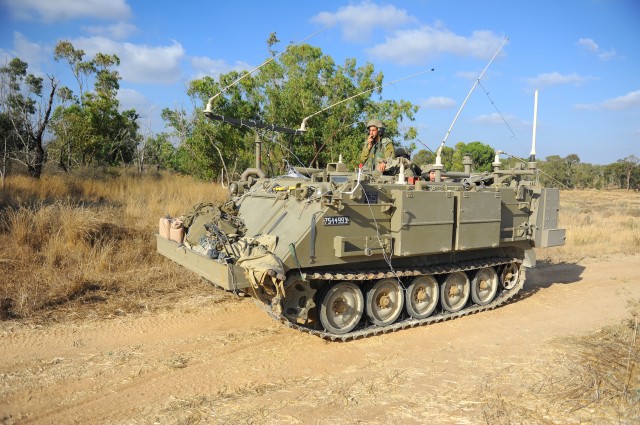Communication is Everything: The Key to Success for an IDF Liaison Officer
Sunday, July 21: another regular summer afternoon in Israel. However, for a small group of future IDF officers, the afternoon is a climactic point in what may prove to be the most important three weeks of their lives.
This three-week-long training represents the final hurdle for the cadets to overcome on their way to becoming battalion liaison officers. During the intensive training, which took place all over Israel, the cadets operated under the simulated scenario of war on all fronts – and really learned what it takes to be a battalion liaison officer.
![]()

APC (Armored Personnel Carrier)
The exercise concluded the cadets’ 20-month-long journey from recruitment day to receiving ranks. To successfully complete their training, the future officers had to put into practice everything they had learned about how to transition from a routine security scenario to emergency situation on all fronts.
“During the course, the trainees studied in two different fields: the professional field, which includes orientation in all operational communications systems, and the tactical field, which includes orientation in all IDF units and arenas of operation, in order to prepare for action in the time of war etc.,” explained Capt. Gal Liphshitz, the cadets’ training commander. “We take all of what they learned and throw them in at the deep end – we don’t explain to them what to do, they have to manage on their own. We, their commanders, give them the operational objectives and let them make the decisions on their own.”
One section of the exercise had the future officers coordinate between three APC (armored personnel carrier) teams in which each APC represented a different force working together in the field – infantry, armor and artillery.
![]()

“The drill is the most difficult part of their training,” Capt. Liphshitz claimed. “The difficulty is not necessarily in the physical activity – it’s in building them to be communications officers.”
They may only carry the modest rank of second lieutenant, but battalion liaison officers represent the final authority regarding all matters of communication and cooperation between battalions.



